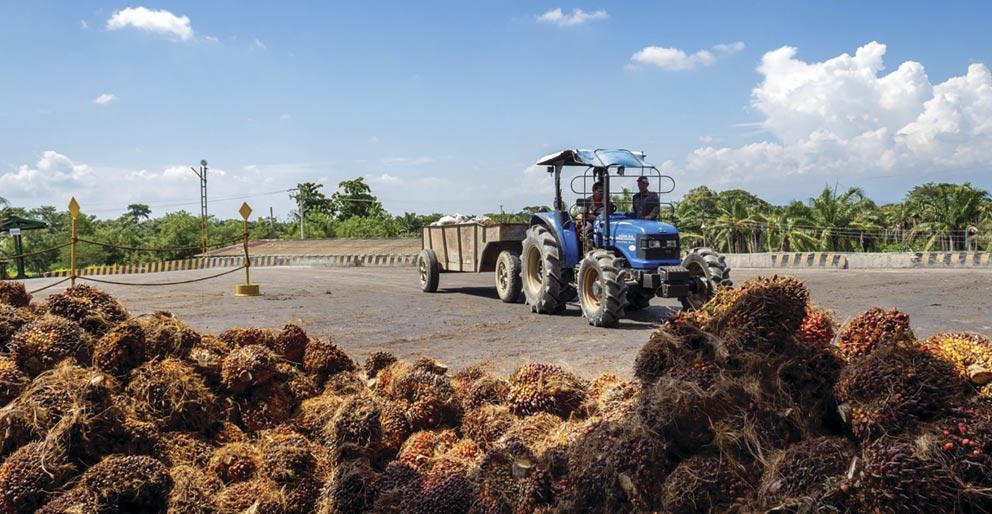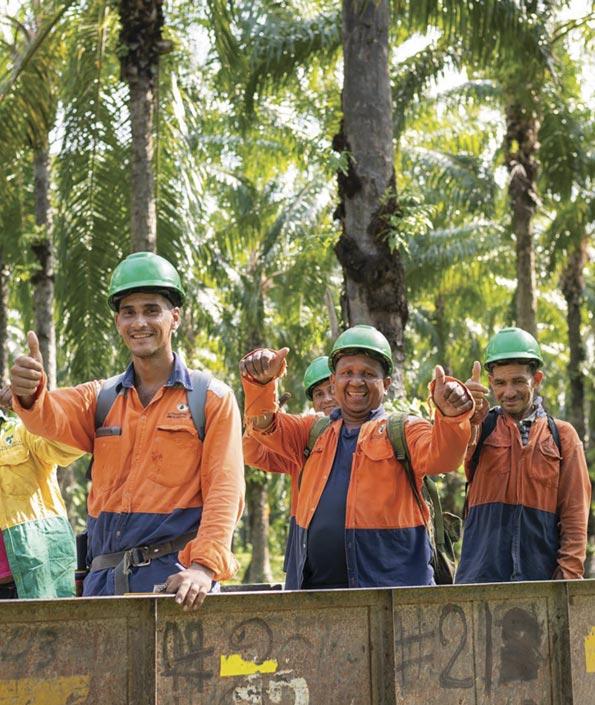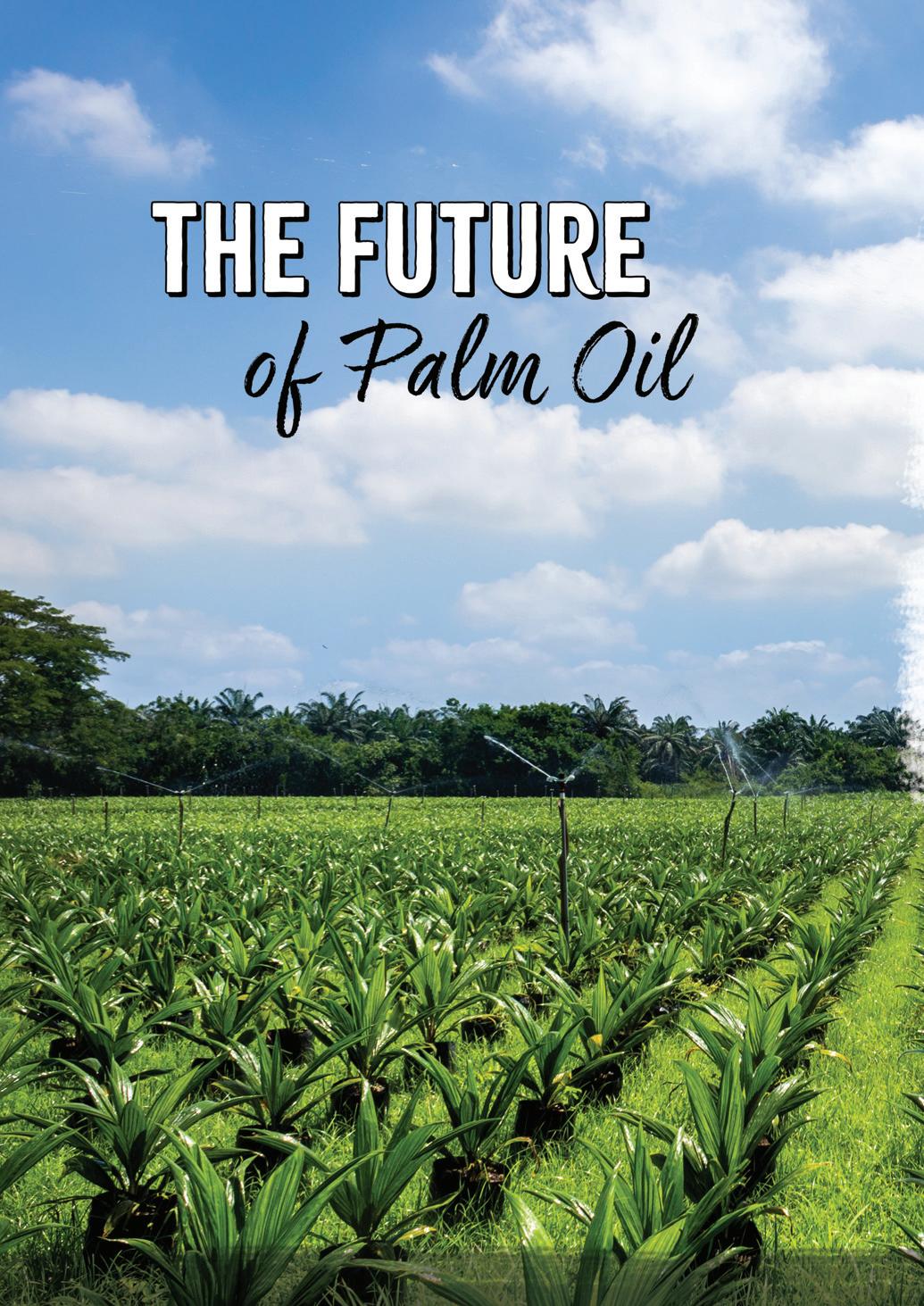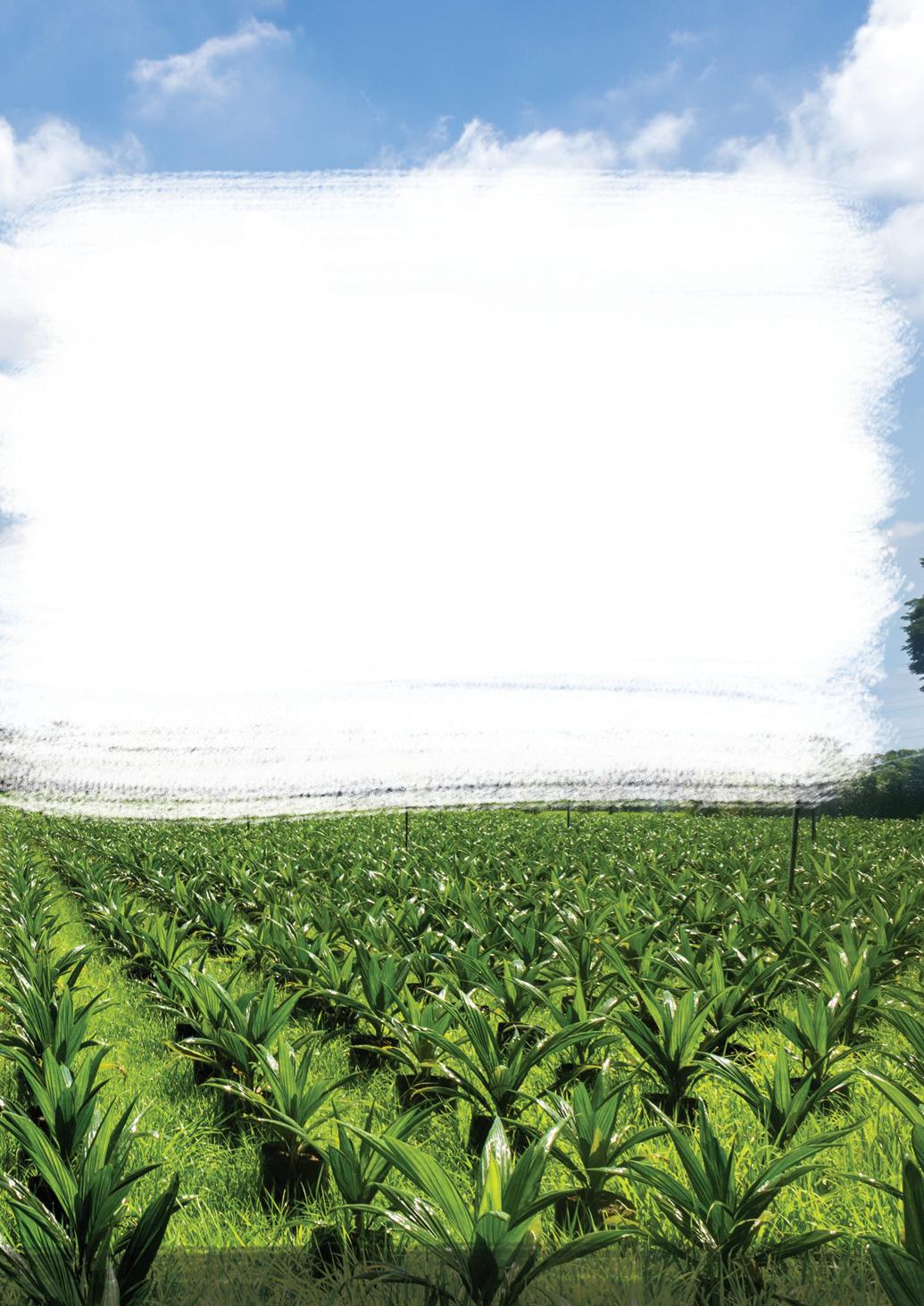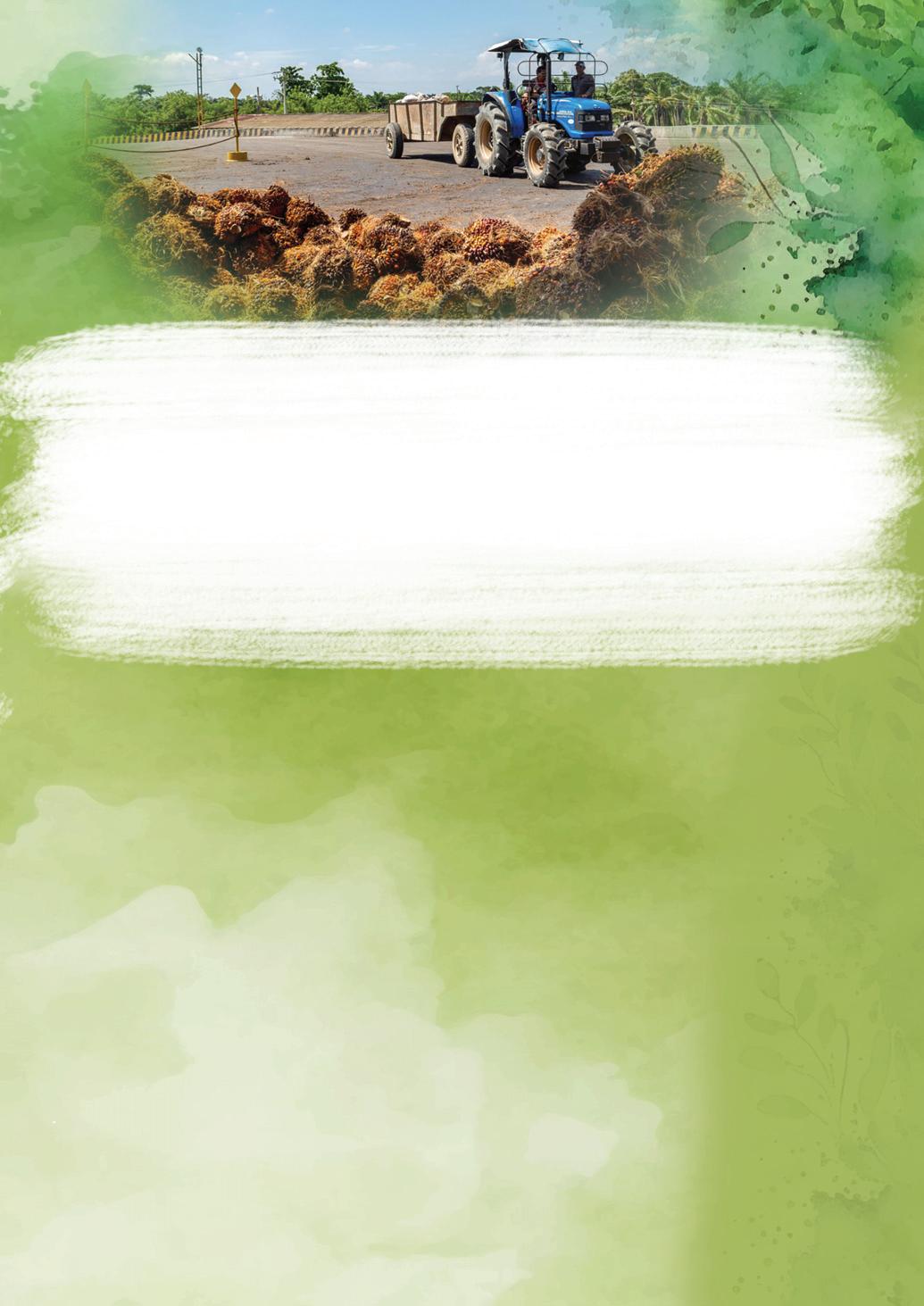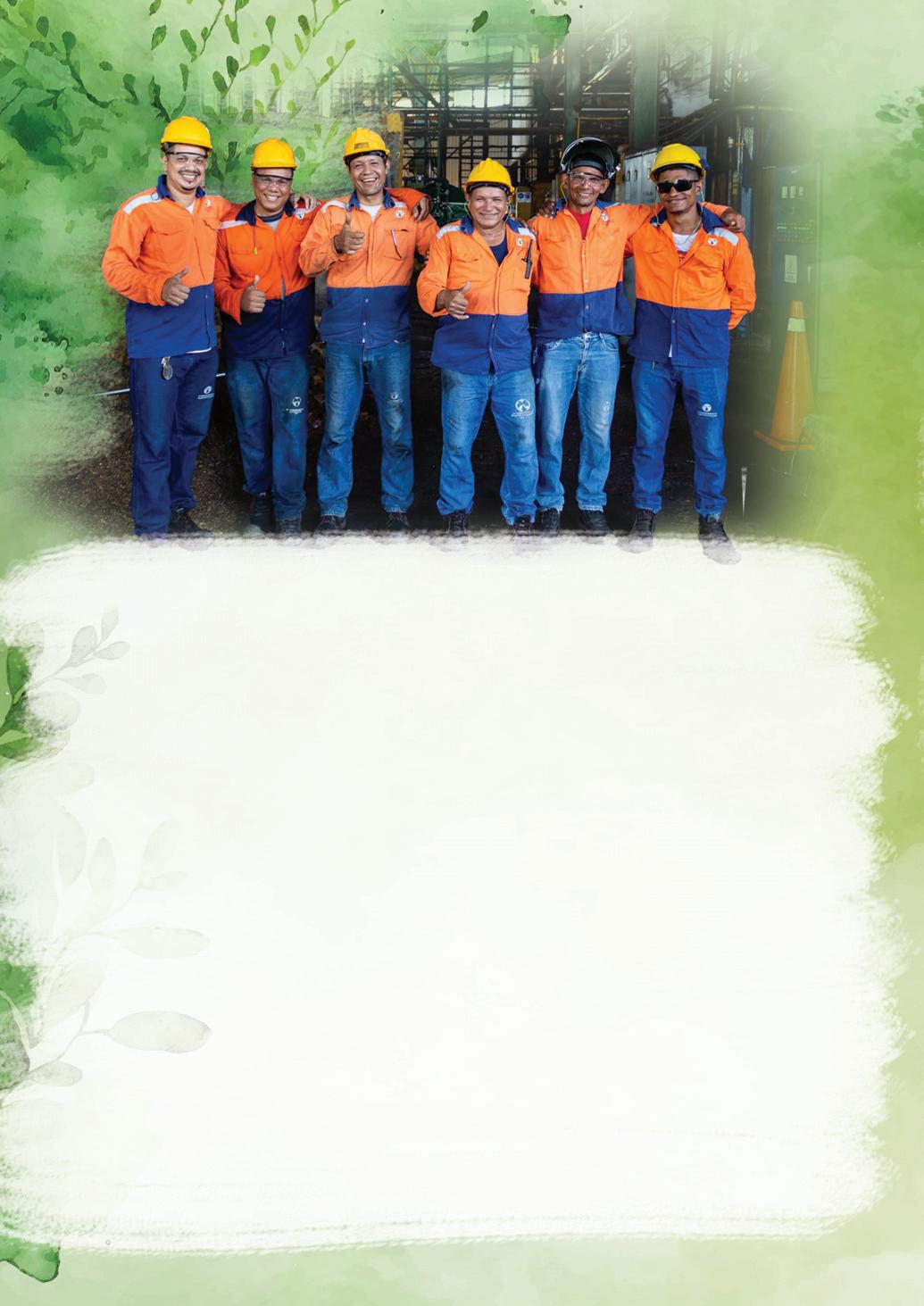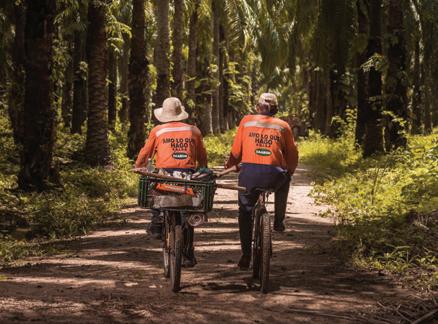DAABON Group produces, transforms and exports organic and sustainable agricultural products. The company has a focus on the production of sustainable palm oil, which is then used within a broad portfolio of products. Managing Director Manuel Davila discussed DAABON Group’s sustainability goals, in conversation with Antonia Cole.
ASa third-generation family business, DAABON has a wealth of experience in the agricultural sector. Mr Davila’s grandfather established the business in Colombia in 1914, producing bananas, rice and cotton. The second generation of the business, Mr Davila’s father, then began to study agriculture and learn about organic farming.
From this, the company incorporated organic agriculture into operations and planted oil palm crops to further progress the business. DAABON received organic certification in oil palm, coffee and banana production in the early 90s, then started to export products to the European, Asian and North American markets.
The profits gained from this success were reinvested into the company. From having a purely agricultural focus, to then also developing processing and packaging
facilities, DAABON began to grow vertically in the value chain.
This allowed the company to distribute more finished ingredients for food manufacturers, with full traceability of the product. Customers could ensure that DAABON’s high level of quality assurance was present throughout every stage of the product’s development.
Over time, the business continued to grow and DAABON expanded into adjacent industries, such as soap manufacturing and biofuels. The group is now comprised of around 5,000 people and last year saw sales of around $1.3 billion.
By 2030, DAABON Group hopes to be providing the global market with carbon neutral oils, Managing Director Manuel Davila said: “We already have a number of initiatives that we are launching to mitigate the production of carbon throughout
DAABON
the supply chain. For us, it’s not just about compensating for carbon emissions, but reevaluating and reforming our operations to create a more circular economy.”
“As a family-run company, we have generations of experience leading us to be experts in the field,” explained Mr Davila. “We know that in farming, you have to work with nature, rather than against it. This is why we have always been focused on sustainability and organic production.”
Growing organically
DAABON was the first organic palm oil company to be certified as sustainable by the Rainforest Alliance. The company’s land has facilitated over 100 years of agriculture, preventing deforestation and protecting biodiversity. DAABON’s forests are home to over 400 birds and 150 mammals, so the company works to prevent the loss of flora and fauna in operations to protect habitats.
Buffer zones of at least 30m are created along all waterways to protect the environment and more than 10% of
DAABON’s land has been transformed into wildlife corridors, allowing animals to roam undisturbed.
“Maintaining a circular economy is at the forefront of our operations,” commented Mr Davila. “The vast majority of our waste is recycled or reused. In terms of palm oil, the oil is extracted from the fruit, but the palm oil mill effluents then go to our Clean Development Mechanism (CDM, an anaerobic digestor), while the empty fruit bunch goes to the composting plant and the shells to our biomass pel letising facility.”
The CDM Project produces energy for the company’s facilities, whereas the composting plant and cattle ranch create fertile soil and manure to be used on farms. Overall, this contributes to the health of the environment on DAABON’s facilities.
Waste generated at palm oil mills is also used as compost or biomass for the company’s boilers. The palm oil sludge produced facilitates the company’s methane capture and control project, which greatly reduces the company’s environmental impact. So far, the project has produced more than
eight million kilowatts of clean methane to power the company’s operation and the Colombian national grid.
Building DAABON with sustainable practices has ensured the success of the company’s future, Mr Davila continued:
“We have been focused on sustainability for a very long time. This places us ahead within the market as new environmental and ethical regulations are enforced, such
as the European Deforestation regulation (EUDR). At DAABON, the systems are already in place to comply with this law, and we’ve already had a lot of positive feedback from European companies on our processes.”
Join the green side
DAABON has always been focused on organic produce and has, therefore, become a leading supplier of organic palm
oil. To make this, first the oil is extracted from the fruit before it then undergoes a fractioning process to create various oils. These oils have a range of properties and textures, which are suited to different market applications.
For example, some oils are suited for soups, whereas others are ideal for spreads, like peanut butter. The company is one of the biggest manufacturers of cooking oil in Colombia and, in the US, DAABON’s oils are most commonly used in chocolate products to enhance textures.
In Europe and Germany, DAABON’s oil is commonly used in the bakery industry for organic breads. The company also has a large presence in the toddler and baby food sectors, due to providing organic oil with no pesticides or contaminants. This makes the food safe for small children and is very popular in Australia.
“The organic food market has been growing steadily for over 20 years,” explained Mr Davila. “The sustainability
category, however, will become extremely relevant next year and further into the future with the introduction of new laws and regulations. DAABON has always been committed to doing things right and we’re happy to see the new EUDR law be enforced.”
The EUDR is an initiative targeting agricultural deforestation to significantly reduce the environmental impact of palm farms and ensuring the sustainable production of palm oil. Additionally, the regulation aims to mitigate climate change, protect biodiversity and the planet’s natural resources.
DAABON is leading the way for sustainable palm oil and is dedicated to preventing deforestation in operations. From implementing environmentally friendly processes to collaborating with local communities to promote sustainable land-use, the company is raising the standards of the palm oil industry.
A healthy planet
As well as ensuring operations are sustainable, DAABON also works to limit the environmental impact of the supply chain. The company selects suppliers and partners whose values align with its own, creating a community that works together to protect the environment.
“The people that we partner with, we work with for a very long time,” said Mr Davila. “We focus on building up real relationships, not just transactional ones. As a family-run company, those values remain prevalent in the business we do to this day and we want to collaborate across the industry to create a better future for us all.”
DAABON has agents based in the US, Colombia, Australia, Germany, Brazil and Japan, which helps to build up these relationships due to ease of access to support and supplies. Through this, the company can better manage communication across
the globe and provide services more quickly and efficiently.
“We will be present at Food Ingredients Frankfurt in November and look forward to speaking with professionals from all over the world,” said Mr Davila. “The future of sustainability within the food ingredient sector is very promising and it will be very rewarding to speak with likeminded people.”
n
